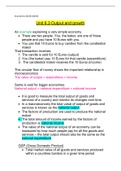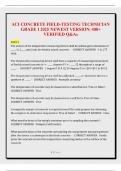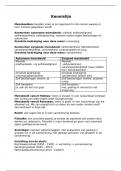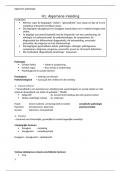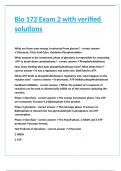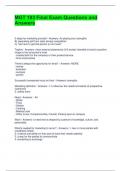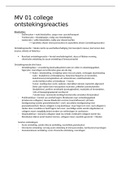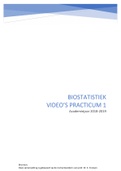Economics IGCSE (0455)
Unit 6.3 Output and growth
An example explaining a very simple economy
• There are two people. You, the baker, are one of those
people and you have 10 Euros with you.
• You use that 10 Euros to buy candles from the candlestick
maker
That transaction involves:
1. The candle is sold for 10 Euros (output)
2. You (the baker) pay 10 Euros for that candle (expenditure)
3. The candlestick maker receives the 10 Euros (income)
This circular flow of money shows the important relationship in
microeconomics
The value of output = expenditure = income
Same is said for bigger economies
National output = national expenditure = national income
• It is good to measure the total output of goods and
services of a country and monitor its changes over time
• In a macroeconomy the total value of output of goods and
services is known as the national output
• The factors of production are used to produce the national
output
• The total amount of income earned by the factors of
production is national income
• The value of the national output of an economy can be
measured by how much people pay for all the goods and
services – the total output should also be the same as the
national expenditure
GDP (Gross Domestic Product)
• Total market value of all goods and services produced
within a countries borders in a given time period
, • Three ways of measuring it
• Output method
• Input method
• Expenditure method
Output Method
Þ Involves adding up the value of the output produced each
period by every business in every industry
Þ Only final outputs should be counted
Þ Example: the value of the output of the ship building
industry includes output produced by the steel industry –
to avoid double counting, you only add up the value added
by each business
Þ In this way a business adds value to the good it produces
Þ The gross added value (GVA) is the market value of its
output less the value of the inputs used
Input Method
Þ Measures the total income earned from the production of
goods and services within the economy
Þ Transfer payments are excluded because they are
unearned incomes such as benefits
Expenditure method
Þ Most goods and services are sold
Þ Value of output can therefore be measured by adding up
the total amount spent on all final goods and services
produced
Real versus nominal GDP
Þ GDP is measured in monetary values – value of income,
output and expenditure are all measured at their market
prices
Þ These measure the money/nominal GDP
Þ Nominal GDP can be misleading as it includes inflation
Unit 6.3 Output and growth
An example explaining a very simple economy
• There are two people. You, the baker, are one of those
people and you have 10 Euros with you.
• You use that 10 Euros to buy candles from the candlestick
maker
That transaction involves:
1. The candle is sold for 10 Euros (output)
2. You (the baker) pay 10 Euros for that candle (expenditure)
3. The candlestick maker receives the 10 Euros (income)
This circular flow of money shows the important relationship in
microeconomics
The value of output = expenditure = income
Same is said for bigger economies
National output = national expenditure = national income
• It is good to measure the total output of goods and
services of a country and monitor its changes over time
• In a macroeconomy the total value of output of goods and
services is known as the national output
• The factors of production are used to produce the national
output
• The total amount of income earned by the factors of
production is national income
• The value of the national output of an economy can be
measured by how much people pay for all the goods and
services – the total output should also be the same as the
national expenditure
GDP (Gross Domestic Product)
• Total market value of all goods and services produced
within a countries borders in a given time period
, • Three ways of measuring it
• Output method
• Input method
• Expenditure method
Output Method
Þ Involves adding up the value of the output produced each
period by every business in every industry
Þ Only final outputs should be counted
Þ Example: the value of the output of the ship building
industry includes output produced by the steel industry –
to avoid double counting, you only add up the value added
by each business
Þ In this way a business adds value to the good it produces
Þ The gross added value (GVA) is the market value of its
output less the value of the inputs used
Input Method
Þ Measures the total income earned from the production of
goods and services within the economy
Þ Transfer payments are excluded because they are
unearned incomes such as benefits
Expenditure method
Þ Most goods and services are sold
Þ Value of output can therefore be measured by adding up
the total amount spent on all final goods and services
produced
Real versus nominal GDP
Þ GDP is measured in monetary values – value of income,
output and expenditure are all measured at their market
prices
Þ These measure the money/nominal GDP
Þ Nominal GDP can be misleading as it includes inflation


